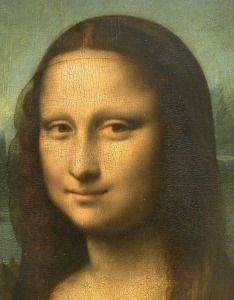An individual human life can range from moments to a century. Yet even a century is a heartbeat when the entire span of human history is imagined. I am reading a book on the Siege of Malta and the Battle of Lepanto, two events that spanned decades, but in hindsight can be analyzed and discussed in an evening. It made me think about the complexity of existence and how limited a single lifetime can be, even one that is long and filled with adventure. It still can represent only a fraction of what is possible, or what has been.
If we imagine that every human life is a book, and that each book is kept in a library, then the magnitude of human experience can be visualized. This library is too big to explore. Even condensed into a single volume titled “The History of Civilization” would be too limited. An individual could not read all those books in his or her lifetime. In order to get a full understanding of what it means to be human, there must be Art.
Art is a form of communication that can condense human experience into a flash of comprehension and even “experience”. This is the big “Art” that includes music and dance and architecture and all forms of human expression. Without these elements of culture, each human life would just be a brief replay of eating and sleeping.
When you look at art (or listen) your brain is encouraged to Grok Fully a message from one mind to another. Time becomes meaningless. The images of the horses in the Chauvet cave speak to us now. The spoken language of the artist is as dead as he is, yet this language of beauty and truth will never disapear. 30,000 years is nothing. And everything. It is now. You can see it. Now.
Concepts can be communicated as well. Here is something remarkable that needs no words in any language to communicate in mere moments the entire history of human war:
This is not just one war, but all wars.
And this is not just one man, but the idea of man:
And woman
And music. Beethoven’s Ninth Symphony is an audible representation of being human. In one short hour you can be infused with every human emotion there is. You want to know what sadness sounds like? Joy? Love? Tenderness? Hatred and anger? For $1.29 you can listen to centuries of collected human emotion on your portable listening device. What does Hope look like? Fear? Love? Museums are filled with sculpture that will show you. Here is something we all can understand:
And this is a tomb. We can understand in one eyeblink the brief breath of one woman’s life and the eternity of this monument and see the love of a man for his wife:
And not to forget film and theatre and literature too. Can’t forget fiction! Exploring what being fully human means has been a common theme since The Metamorphoses of Apuleius.
Why are we here? What does it all mean? We want to know. We have to know.
A life without Art is a life lived alone.
Art is forever. Life is brief.
![Chauvet_Horses[1]](https://annmariebanks.files.wordpress.com/2012/04/chauvet_horses1.jpg?w=300&h=222)








